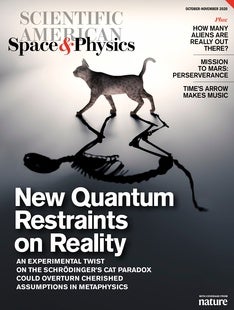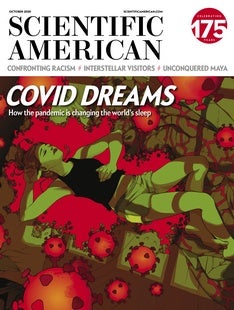 |
| October 19, 2020 |
Dear Reader,
A new study suggests rapid climate change—even just a few degrees of warming—could trigger dramatic bursts of carbon from the thawing Arctic. In space news, researchers may have found a rocky "free-floating" planet. And lastly, a neuroscientist explains why a surprise victory for President Trump is unlikely to happen again in this election. |
| | Sunya Bhutta, Senior Editor, Audience Engagement
@sunyaaa | |
 |
| |
| |
| |
| |
| |
| |
| Arts & Culture 3,000-Year-Old Orbs Provide a Glimpse of Ancient Sport Researchers say three ancient leather balls, dug up from the tombs of horsemen in northwestern China, are the oldest such specimens from Europe or Asia. Christopher Intagliata reports. |  | By Christopher Intagliata | 01:46 | | | |
| |
FROM THE STORE
 | | Scientific American Unlimited For just $199 a year, Scientific American Unlimited gives you access to all of our publications, apps and the full website experience. |  | | |
| |
LATEST ISSUES
 |
| |
| Questions? Comments?  | |
| Download the Scientific American App |
| |
| |






















Comments
Post a Comment